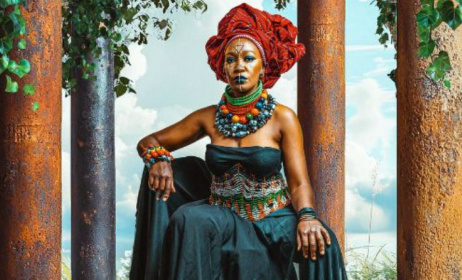KECOBO: No official directive to move to ICT Ministry
The office of the Attorney General and the Department of Justice will continue to monitor the Kenya Copyright Board (KECOBO). This is until an executive order is issued by the presidency to transfer KECOBO to the Ministry of Information, Communications and Technology (ICT).
 Kenyan President Uhuru Kenyatta.
Kenyan President Uhuru Kenyatta.
Kenyan media reported earlier this week that KECOBO would officially join the ICT Ministry, but a source at KECOBO has confirmed to Music In Africa that the regulator is yet to receive an official directive on the matter.
At the weekend, President Uhuru Kenyatta questioned the integrity of the country's collective management organisation (CMOs) after the Music Copyright Society of Kenya (MCSK) paid out about 2 500 Kenyan shillings ($25) to each of its 14 000 members on 13 August. Kenyatta, who was speaking at the funeral of benga musician John DeMathew on Saturday, said KECOBO's work would now be overseen by the ICT Ministry. This after allegations of misappropriation of funds unnerved many of Kenya's musicians, who took to social media to voice their disappointment in the country's royalty collection system.
"Recently, we were told that an organisation collected more than 200 million shillings on behalf of musicians and then claimed that they spent 60% of that money as expenses for the collection," Kenyatta said. "Yesterday [23 August], I directed the director of Criminal Investigations and Ethics and Anti-Corruption Commission to investigate what has been going on at the copyright board and submit a report, which will be made public.
"There are people who have been accused of embezzling money, which does not belong to them, and if indeed it is proved to be the case, they will definitely pay. You know the offices of the copyright board are at the Attorney General's office, and the AG and his team do not deal with music, they are lawyers so that office will be moved to the ICT Ministry because, through the communications authority, the ICT will be able to monitor which music plays, on which TV or radio station and ensure that the artists get their deserved dues... I have instructed the ICT Ministry to ensure that before the renewal of licences for broadcasters and telecoms, they must pay what they owe artists."
Kenyatta's statements contradict KECOBO, which said on 14 August that Kenya's licensed CMOs had collected 118 million shillings in performance fees for the second quarter of 2019 and distributed 68% of that amount.
Meanwhile, the Business Daily publication published an op-ed by Edward Sigei on 19 August in which the KECOBO boss says that the regulator was looking to partner with ministries and government agencies to ensure compliance by users of copyrighted works.
"The Kenya Copyright Board has been toying with methods of collections that do not involve direct contact with the users and the use of police in enforcement," he wrote. "These include imposing a music levy on food and hotel establishments to be collected in the same manner as catering levy, music levy on alcoholic beverages, a subscription model for media houses that pays for every song played and a flat royalty at National Transport and Safety Authority licence desk."
At Saturday's funeral, Kenyatta also said he was willing to sign the Copyright Amendment Bill into law. The bill was amended by KECOBO and presented to Parliament in 2017 and is currently awaiting final adaptations before Kenyatta can sign it.
But many critics say Kenyatta often pays lip service to the arts sector for political mileage, particularly at public events where musicians are in attendance. In August 2018, he told a crowd at the Kenya National Music Festival that he would waive import duties on musical instruments and gear. He made the same announcement at the same event earlier this month.




































Comments
Log in or register to post comments